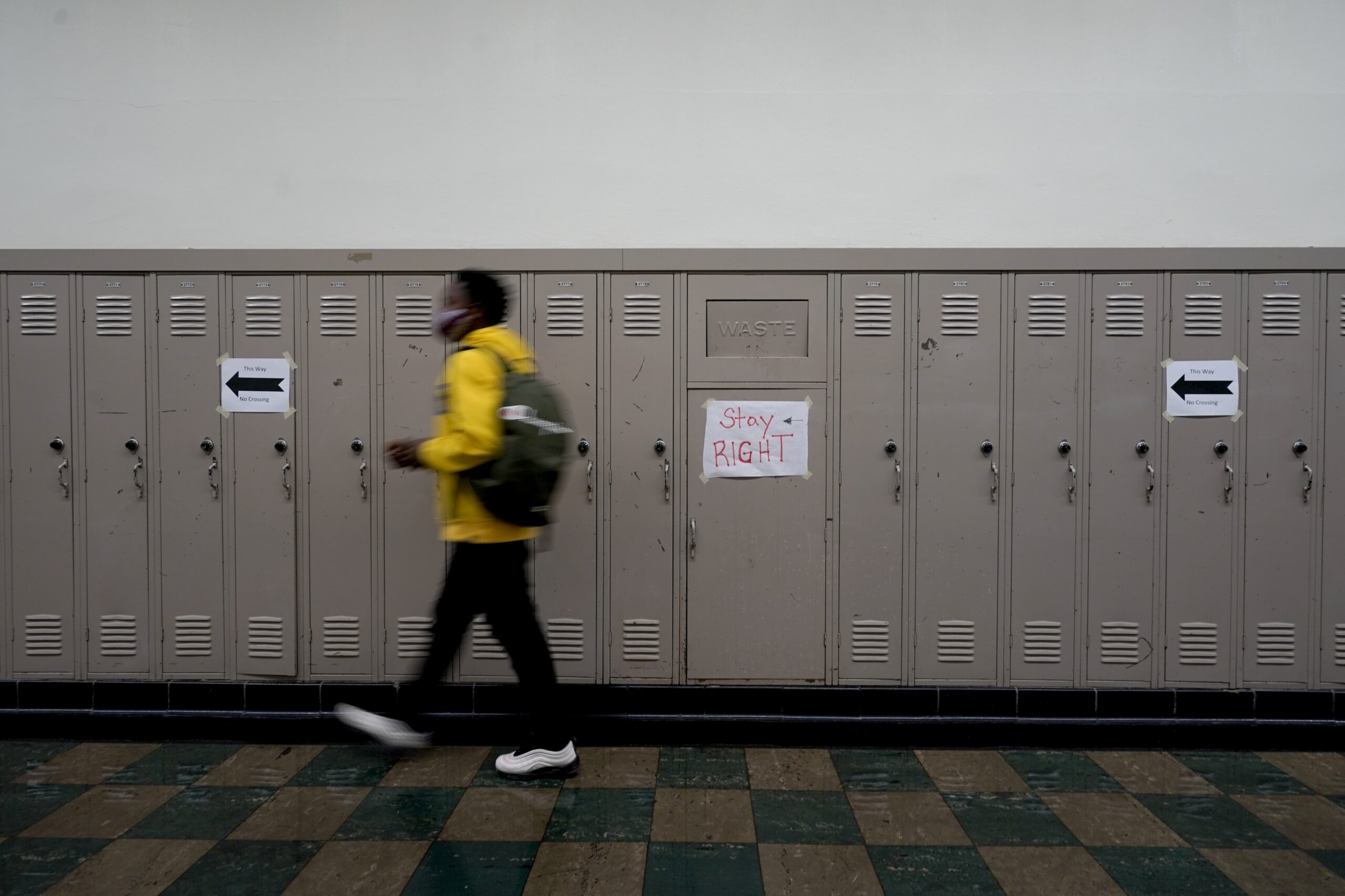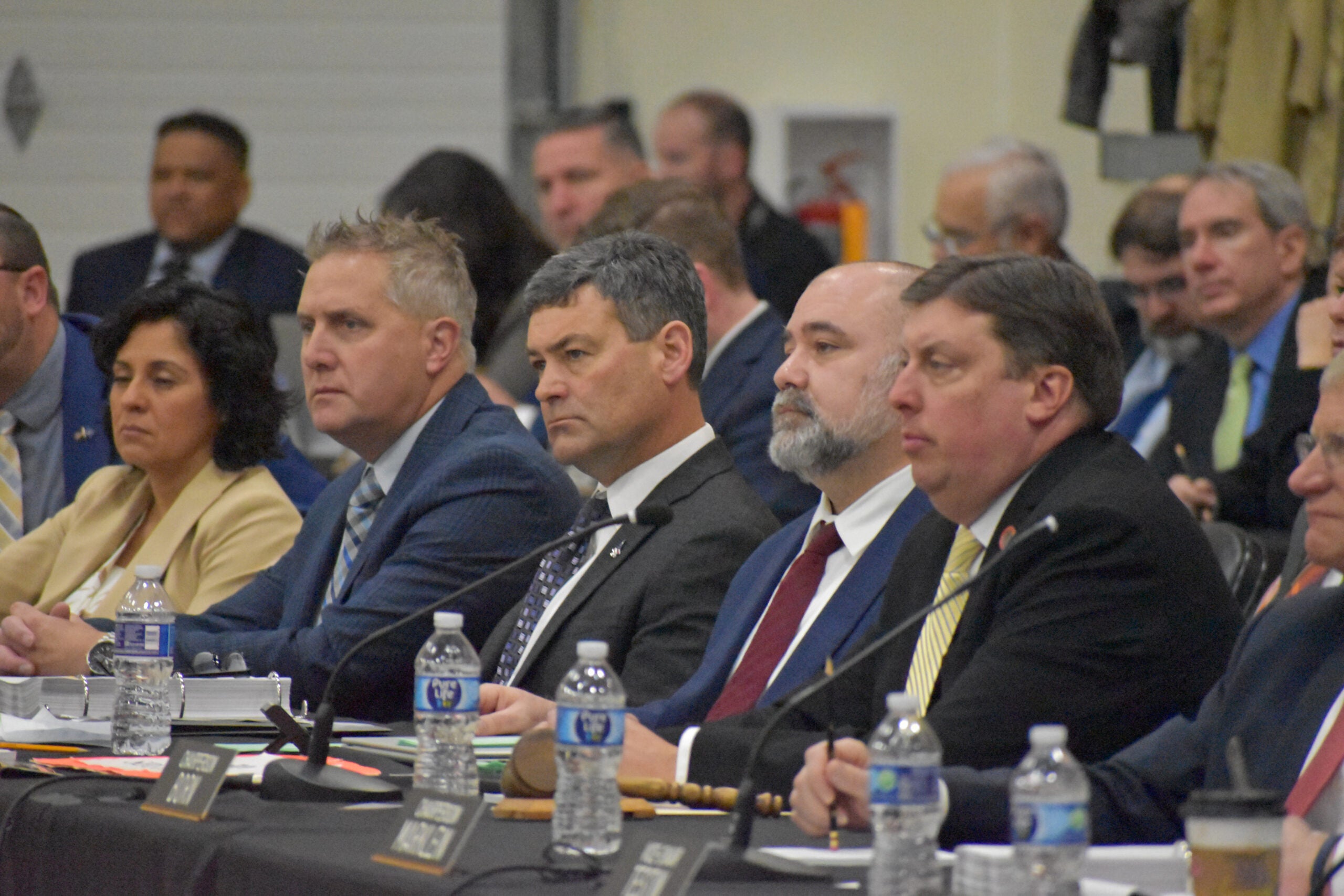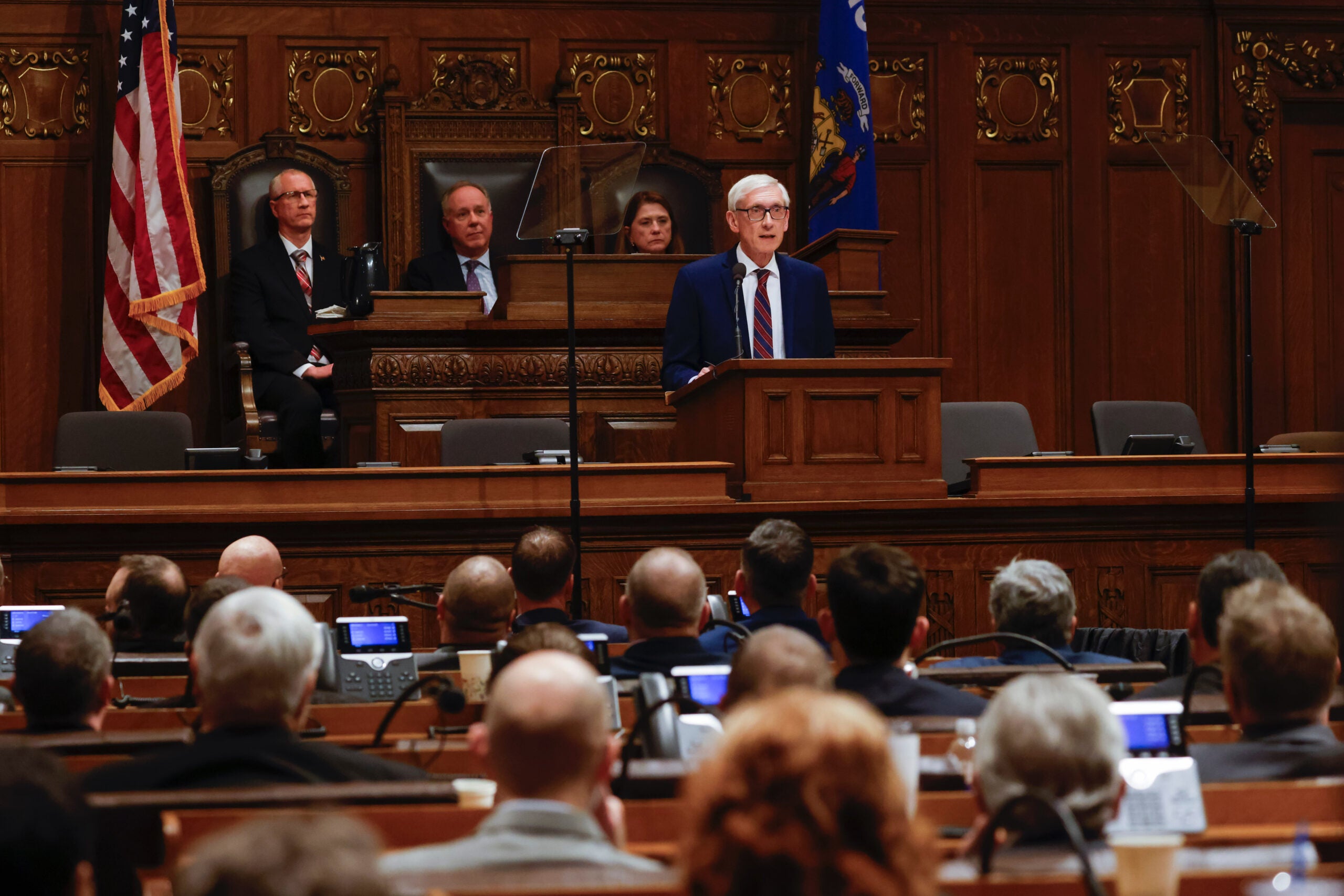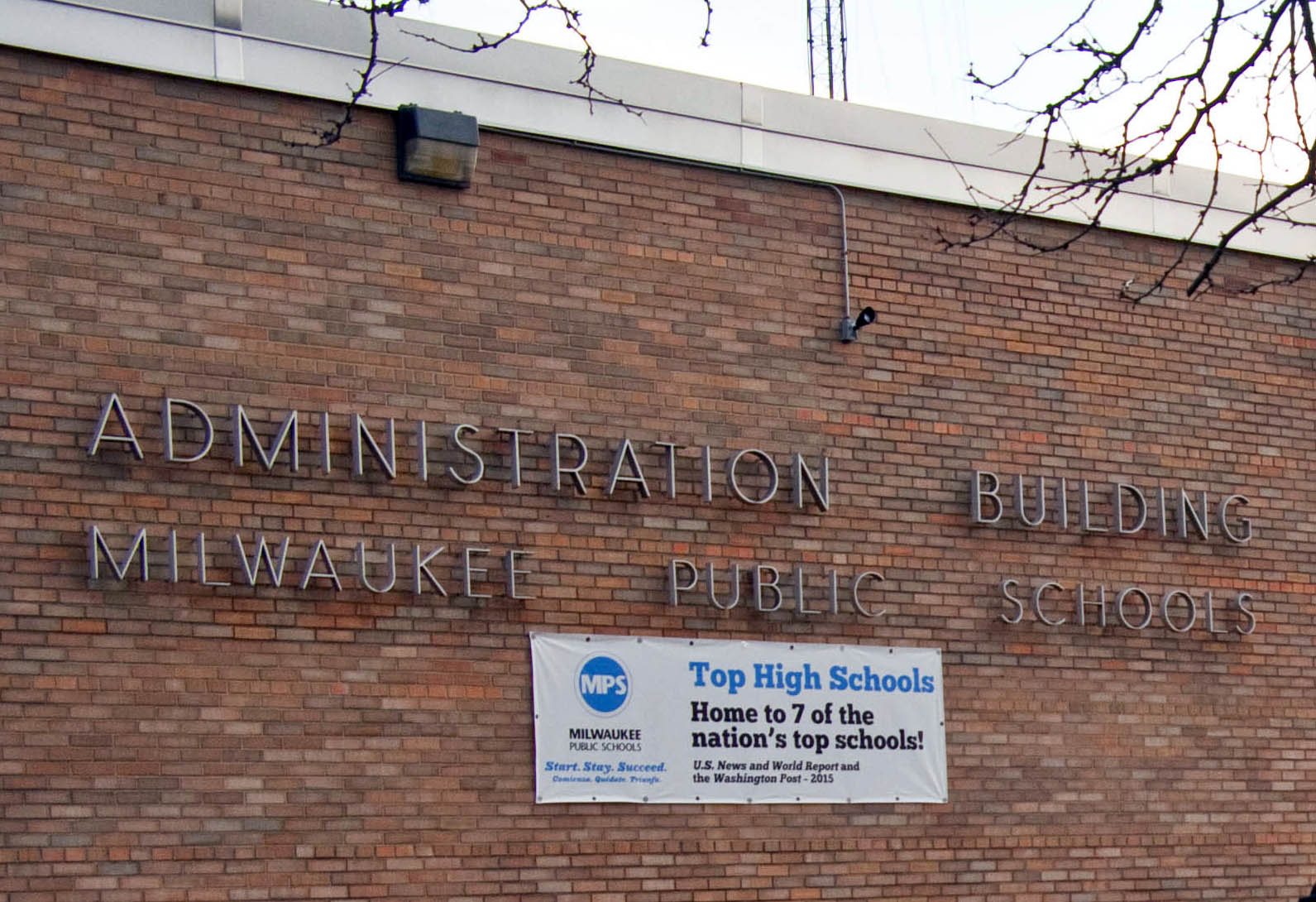Wisconsin could lose $1.5 billion in federal coronavirus support for schools if Republican lawmakers don’t change their plan for school spending in the next two-year state budget.
According to a Friday letter from the U.S. Department of Education, the federal government is concerned a budget proposal approved Thursday by the GOP-controlled state budget committee may not meet federal requirements to receive the latest round of education aid.
Each of the three coronavirus aid packages approved by Congress have had requirements for states to qualify to receive the money. For education funds, those requirements include keeping state spending on schools level between the 2020 and 2023 fiscal years.
Stay informed on the latest news
Sign up for WPR’s email newsletter.
Under the Republican school spending plan approved Thursday, $350 million would be transferred to the state’s so-called “rainy day fund.” However, the rainy day fund can be tapped for any purpose, and the flexibility of the fund has given federal officials pause. Because the funds could be spent on anything, they believe the $350 million couldn’t be counted as education spending. Removing that amount from the education budget would put Wisconsin at risk of falling short of the federally-required funding level.
“We are concerned that this proposal may have an impact on the ability of the State and its local educational agencies (LEAs) to comply with Federal fiscal requirements if the funds, in fact, are not appropriated for K-12 education,” the letter read.
According to the letter, the requirements are aimed at “(ensuring) that States do not reduce support for education because of the influx of Federal financial assistance and that students receive the much-needed supports and services that the additional Federal resources are intended to provide.”
Budget committee co-chairs Sen. Howard Marklein, R-Spring Green, and Rep. Mark Born, R-Beaver Dam, pushed back on the letter on Friday.
“We will continue to consider the potential impact of the (requirements) for the future, but we will not paralyze our state budget process,” Marklein said via email. “We made strategic investments in K-12 and higher education yesterday that will move Wisconsin forward and we will continue to do what is right for the taxpayers of our state.”
“Nothing has changed since yesterday’s committee hearing in which the committee made significant investments in K-12 education beyond the obscene amount of federal money pouring into our schools,” Born said via email. “We are aware of the MOE requirements and the many questions surrounding them from states across the country.”
Wisconsin Public Radio, © Copyright 2025, Board of Regents of the University of Wisconsin System and Wisconsin Educational Communications Board.







